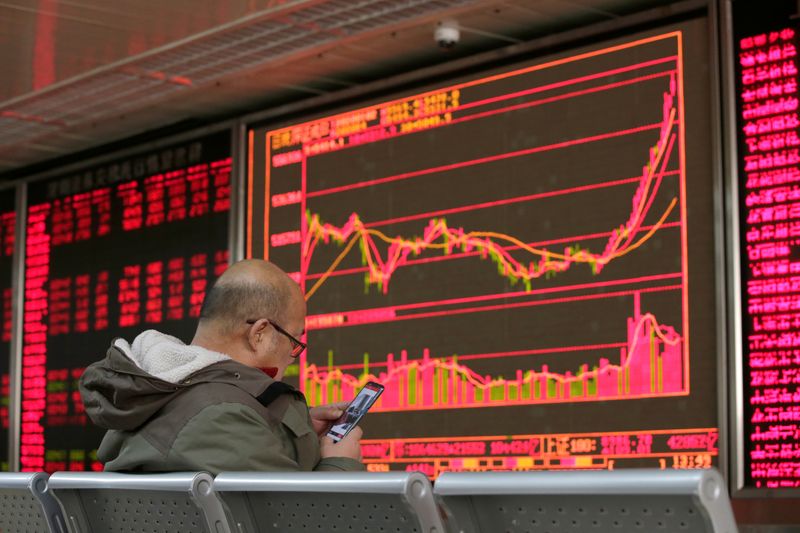Asian stocks move little as hawkish Fed, China COVID concerns weigh
2022.11.18 03:38
[ad_1]

© Reuters
By Ambar Warrick
Investing.com– Most Asian stock markets kept to a tight range on Friday, and were set for a muted week as hawkish signals from the Federal Reserve and worsening COVID-19 infections in China kept most investors from making large bets.
Hong Kong stocks were among the worst performers for the day, with the index down 0.7%. While the index saw volatile trade this week, it was still set to end the week nearly 4% higher on some optimism over the scaling back of COVID-19 restrictions in the city.
Chinese stocks also fell on Friday, and were set to end the week slightly positive amid some optimism over the relaxation of China’s zero-COVID policy.
China’s blue-chip index fell 0.3% on Friday, while the index fell 0.4%. Both indexes were set to add less than 0.5% this week.
Sentiment towards China was dented as the country logged its biggest daily jump in COVID cases in seven months. Rising infections brewed concerns over renewed lockdown measures in the country, which have severely crimped economic growth this year.
Weak economic readings from China released this week also showed that the country was struggling to navigate new lockdown measures, denting sentiment.
Broader Asian stocks were muted after a slew of hawkish signals from the Federal Reserve this week. said on Thursday that the central bank needs to raise interest rates much more to curb inflation, with a series of hikes this year having only a limited impact on price pressures.
While the bank is expected to in the coming months, Bullard’s comments could herald a longer-than-expected tightening cycle by the central bank. While did ease more than expected in October, it remained well above the Fed’s annual target.
Such a scenario is expected to weigh on Asian stock markets, and is likely to see regional central banks also enact sharper rate hikes.
Japan’s index fell 0.1% on Friday, as in the country surged to a 40-year high in October. The reading, coupled with weakening economic growth, fed speculation that the may eventually tighten its accommodative monetary policy.
In Southeast Asia, rose 0.3%, even as the hiked rates by 75 basis points and signaled more measures to combat inflation.
rose 0.3% after the hiked rates by 50 basis points.
[ad_2]
Source link








